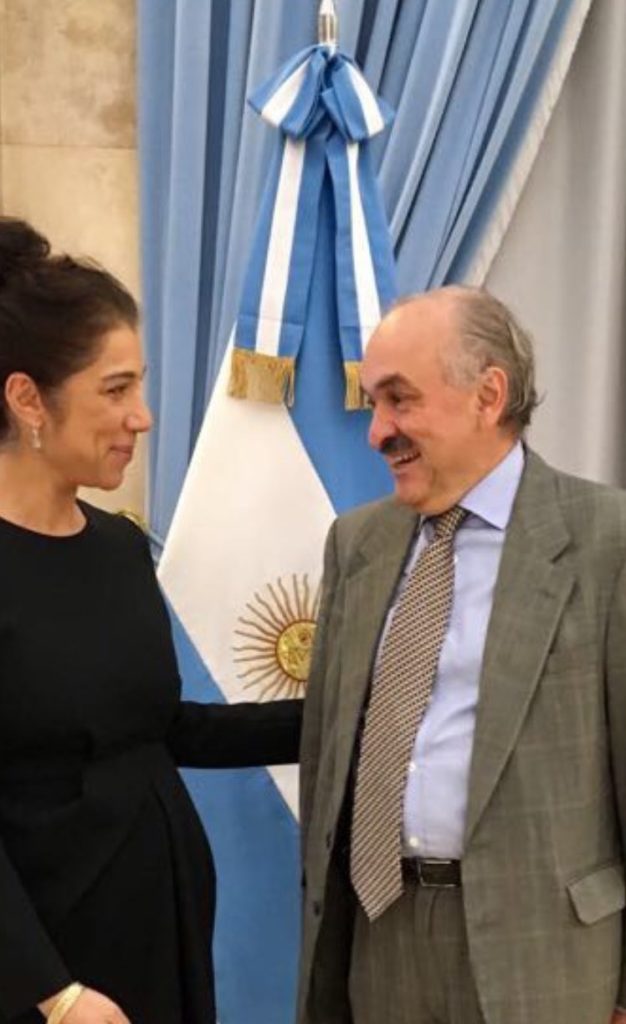GCPEA News
Over 80 states gather to discuss Safe Schools Declaration at Buenos Aires conference
GCPEA PRESS RELEASE, March 30, 2017
Students, teachers, and academics living in situations of armed conflict are safer because of commitments made at the Second International Conference on Safe Schools, said the Global Coalition to Protect Education from Attack (GCPEA). At the two-day conference held in Buenos Aires, Argentina, on March 28-29, 2017, more than 220 representatives from 82 countries and a range of non-governmental and international organizations gathered to review progress in implementing the Safe Schools Declaration.
Belgium announced its endorsement of the Declaration at the Conference, bringing to 62 the total number of states belonging to a growing community committed to safeguarding education during armed conflict.
“The number of countries that have endorsed the Safe Schools Declaration and are taking concrete steps to implement it represents, in less than two years, the creation of a critical mass of governments that recognize how important it is to act to protect education in armed conflict,” said Diya Nijhowne, GCPEA director. “We encourage all remaining countries to join this global movement to enable schools and universities to function as safe places for learning everywhere, even in the chaos of war.”
The Conference, co-hosted by the Argentine Ministries of Foreign Affairs and Defense, reviewed progress in implementing the Safe Schools Declaration achieved since it was initially opened for endorsement at the First International Safe Schools Conference in Oslo, Norway, in May 2015.
The Safe Schools Declaration, an inter-governmental political commitment, was developed through consultations with states in a process led by the governments of Norway and Argentina. By joining the Declaration, governments commit to endorse the Guidelines for Protecting Schools and Universities from Military Use during Armed Conflict. GCPEA research has found that, since 2013, armed forces and non-state armed groups have used schools as bases and barracks, detention centers, training grounds, and for other military purposes in 24 countries, placing schools at risk of attack by opposing forces, and threatening the lives of the students and teachers inside.
Many states shared concrete examples of measures they are taking to implement the Declaration, thereby improving the protection of education in situations of armed conflict, including by avoiding the military use of schools and universities.
At the Conference, GCPEA, in partnership with the Roméo Dallaire Child Soldiers Initiative, released a toolkit to assist ministries of defense and armed forces in implementing the Guidelines. The toolkit is composed of practical tools intended as teaching aids, guidance, and aides-memoire for national ministries of defense, military trainers, officers, and soldiers involved in the planning and conduct of military operations.
Countries that endorse the Declaration also pledge to improve monitoring and reporting of attacks on education and military use of schools, assist victims of attacks, prosecute perpetrators of violations of national and international law relating to education, and promote conflict-sensitive education policies and measures that enable safe education to continue during war.
Speakers at the conference included Ángel Tello, Secretary for Strategic and Military Affairs, Vice Minister of Defense of the Argentine Republic; Pedro Villagra Delgado, Vice Minister of Foreign Affairs of the Argentine Republic, who presided over and chaired the Conference; Laila Bokhari, Deputy Minister of Foreign Affairs of Norway; Patricia Erb, CEO of Save the Children Canada; Jorge Szeinfeld, Director of Human Rights and International Humanitarian Law, Ministry of Defense of Argentina; and Zama Neff, Co-Chair of GCPEA.
Jean-Marc Ayrault, Minister of Foreign Affairs and International Development of France, Leila Zerrougui, Special Representative of the Secretary-General for Children and Armed Conflict, and Irina Bokova, Director-General of UNESCO, addressed the conference by video. In addition, representatives from affected states, United Nations agencies and peacekeeping missions, the International Committee of the Red Cross, and a range of civil society organizations, shared experiences of the devastating consequences of attacks on education, as well as examples of good practice to protect education.
“While children and young people suffer, sometimes irreparably, when their education is interrupted and their schools become part of the battlefield, countries too can take much longer to rebuild when educational infrastructure is destroyed,” said Nijhowne. “By implementing the commitments contained within the Safe Schools Declaration, states are taking a crucial step to break this cycle of devastation and despair and to restore hope in the future for students, teachers, and societies.”





